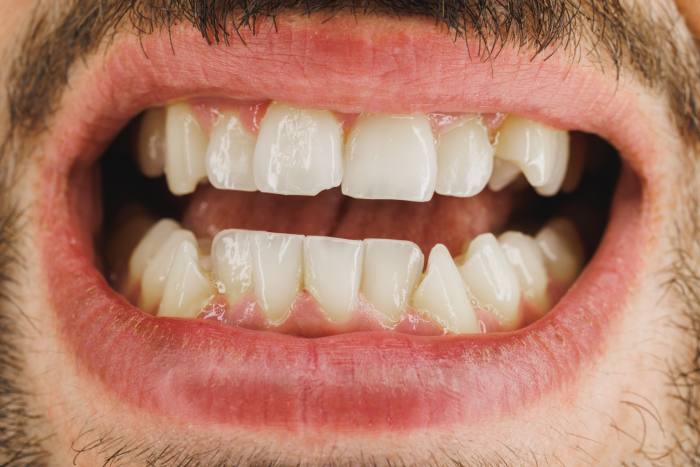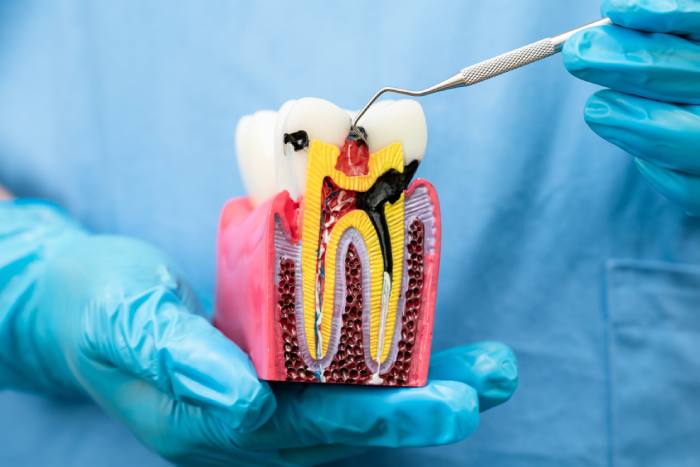Have you ever experienced a sudden, sharp pain in your teeth when biting into something cold, hot, sweet, or acidic? This common issue is known as tooth sensitivity, and it can significantly impact your enjoyment of food and drinks. At Ames Dentistry in Xenia and Wilmington, Ohio, we understand how uncomfortable and bothersome tooth sensitivity can be, and we’re here to help you understand its causes and find effective solutions.
What is Tooth Sensitivity?
Tooth sensitivity, also referred to as dentin hypersensitivity, occurs when the underlying layer of your tooth, called dentin, becomes exposed. Dentin contains tiny tubules that lead directly to the nerve of the tooth. When these tubules are exposed, external stimuli like temperature changes or certain foods can stimulate the nerve, causing that sudden, often sharp pain.
Common Causes of Tooth Sensitivity:
While the sources do not explicitly list causes of tooth sensitivity, based on general dental knowledge, several factors can lead to exposed dentin and subsequent sensitivity:
Enamel Erosion
The enamel is the hard, outer layer that protects your teeth. Over time, enamel can wear away due to factors like:
- Aggressive brushing: Brushing too hard or using a hard-bristled toothbrush can erode enamel and recede gums.
- Acidic foods and drinks: Frequent consumption of citrus fruits, sodas, and other acidic items can dissolve enamel.
- Acid reflux (GERD): Stomach acid that flows back into the mouth can erode tooth enamel.
Gum Recession: When gums recede, the root surfaces of the teeth, which are not covered by enamel, can become exposed. Root surfaces contain dentin. Gum recession can be caused by:
- Periodontal disease (gum disease): This infection of the gums damages the gum tissue and bone that support your teeth. Ames Dentistry provides gum disease therapies to safeguard your oral well-being.
- Aggressive brushing: As mentioned earlier, this can also contribute to gum recession.
Tooth Decay (Cavities): Decay can erode the enamel and dentin, exposing the nerve and causing sensitivity. Ames Dentistry offers fillings to restore decayed or damaged teeth.
Cracked or Chipped Teeth: Damage to the tooth’s surface can expose the dentin and lead to sensitivity.
Dental Procedures: Temporary sensitivity is common after certain dental procedures like teeth whitening, fillings, or root canals. Ames Dentistry offers teeth whitening treatments and root canals.
Bruxism (Teeth Grinding): Grinding or clenching your teeth can wear down enamel, leading to sensitivity.
What Can You Do About Tooth Sensitivity?
If you are experiencing tooth sensitivity, there are several steps you can take:
- Use a Desensitizing Toothpaste: These toothpastes contain ingredients that help block the tubules in the dentin, reducing nerve stimulation.
- Use a Soft-Bristled Toothbrush and Brush Gently: This helps prevent further enamel erosion and gum recession.
- Avoid Acidic Foods and Drinks: Limit your intake of highly acidic items, and when you do consume them, rinse your mouth with water afterward.
- Maintain Good Oral Hygiene: Regular brushing and flossing help prevent cavities and gum disease, which can contribute to sensitivity. Ames Dentistry emphasizes the importance of routine teeth cleanings for preventing these issues.
- Consider Fluoride Treatments: Fluoride can help strengthen enamel and reduce sensitivity. Topical Fluoride is even covered twice a year under Ames Dentistry’s In-House Smile Plan.
Don’t Let Tooth Sensitivity Control Your Diet!
Tooth sensitivity is a treatable condition. Ignoring it can lead to avoiding certain nutritious foods and can sometimes be a sign of a more significant underlying dental problem.
Take the first step towards a pain-free eating experience!
If you’re tired of wincing with every bite, we encourage you to schedule an appointment at Ames Dentistry in Xenia or Wilmington. Our skilled dental professionals can help identify the cause of your tooth sensitivity and recommend the most effective treatment plan for you. We are committed to providing personalized and comprehensive treatment to ensure your comfort and oral health.
Call our Xenia office at (937) 372-8502 or our Wilmington office at (937) 382-6971 to book your appointment today! We look forward to helping you enjoy your favorite foods again without the pain.








